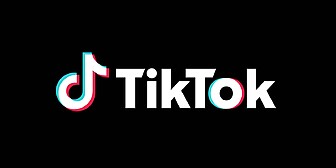DHS Proposes Changing H-1B Lottery to Weighted, Wage-Based System

The following article was first posted in the Insights section of Harris Beach Murtha’s website. It is reposted here with permission.
In its ongoing efforts to revamp the H-1B visa status framework, the U.S. Department of Homeland Security issued a Notice of Proposed Rulemaking on Sept. 24, 2025, proposing a regulatory rule to change the process by which cap-subject H-1B status applicants are selected by U.S. Citizenship and Immigration Services (USCIS) for eligibility to file H-1B petitions in its annual lottery.
This substantive change proposes a weighted lottery selection system whereby H-1B beneficiaries offered the highest wages are given the highest likelihood of being chosen in the lottery and afforded the opportunity to subsequently petition for H-1B work status.
This system is a marked departure from the current system, in which there is generally no special preference given to H-1B lottery entrants.
Background
The H-1B visa status classification is the most common visa type used for U.S. employers to hire and employ foreign nationals for temporary employment. This status is available to those hired to be employed and perform services in a “specialty occupation.”
This term is defined in the relevant immigration regulations as an occupation that:
“… requires theoretical and practical application of a body of highly specialized knowledge in fields of human endeavor including, but not limited to, architecture, engineering, mathematics, physical sciences, social sciences, medicine and health, education, business specialties, accounting, law, theology, and the arts, and which requires the attainment of a bachelor’s degree or higher in a specific specialty, or its equivalent, as a minimum for entry into the occupation in the United States.” [8 U.S.C. § 214.2(h)(4)(ii)]
To implement and set limits upon the H-1B program, Congress set an annual quota restricting its use.
The current framework caps the annual quota for new H-1B petitions for those who have not been granted H-1B status during the previous six years at 65,000.
The H-1B cap numbers have not been updated for many years and have not accounted for population growth or the current needs of the U.S. economy.
An additional 20,000 slots are also allocated for those foreign national beneficiaries who have earned the minimum of a master’s degree from a qualifying U.S. educational institution.
Due to political constraints, the H-1B cap numbers have not been updated for many years and have therefore not accounted for population growth or the current needs of the U.S. economy.
Accordingly, for many years, the annual H-1B quota has been filled nearly instantaneously upon the commencement of the filing eligibility period.
This situation has led to the creation of the H-1B cap lottery system, wherein a random lottery system is used annually at the outset/opening of each H-1B cap season to determine which applicants will fill the available cap slots and be afforded the opportunity to petition for, and gain, H-1B status each year.
Until now, no special consideration in the annual cap lottery was given regarding the compensation level for each offered H-1B position.
Indeed, the plain language of the controlling Immigration and Nationality Act statute states that the H-1B cap slots conferring H-1B eligibility should be “issued … in the order in which petitions are filed for such visas or status” (thereby permitting the cap lottery system to be used at the commencement of each year’s quota system implementation in a random nature, and not by limiting/favoring the availability of the H-1B program to those employers who pay the highest compensation).
Proposed Selection System
In contrast, the proposed new DHS rule drastically changes the way in which those who registered for the H-1B cap lottery are selected to have the opportunity to petition for H-1B status.
It instead institutes a new wage-based selection process system where the selection of H-1B registrations are prioritized/weighted based upon the salary compensation level the employer plans to pay the H-1B worker.
For instance, there are four wage levels currently used by the U.S. Department of Labor to categorize H-1B specialty occupations.
The selection of H-1B registrations are prioritized/weighted based upon salary compensation level.
This new rule utilizes that mechanism to prioritize each submitted lottery registration in terms of its likelihood to be chosen as a lottery winner.
In effect, those H-1B beneficiaries to be paid at the highest Level 4 wage will possess four times the chance of being selected in the lottery than those being paid at the Level 1 “entry-level,” those with Level 3 qualifying wage compensation will have three times the chance of success as Level 1 applicants, etc.
As a result, USCIS has acknowledged the probability of Level 1 workers being selected to be eligible to file an H-1B cap-subject petition will decrease by 48%!
Implications, Current Status
Immigration advocates argue this proposed rule/regulation violates Congressional intent regarding the promulgation and implementation of the H-1B program, as Congress did not intend to limit the program’s use to employers with the ability to pay the highest wages.
Indeed, it can be rationally said the U.S immigration system as a whole was not created for, nor intended to be, a plutocratic type of system favoring the wealthy.
Immigration advocates claim this change will have a substantial negative impact on a wide range of U.S. employers and industries, including the healthcare and technology fields.
Additionally, they argue the new system will limit the ability of smaller businesses and startups to use the program to foster innovation and growth, thereby unnecessarily hindering the potential success of their business efforts.
Therefore, they say this consequence could ultimately hurt, not help, the U.S. economy.
Conversely, large corporations that can afford to pay the higher wages are enthused by this change, as it will undoubtedly lead to higher percentages of their H-1B cap lottery entrants being selected as winners, affording them the opportunity to employ more of these workers each year than prior lottery results have yielded.
The new system will limit the ability of smaller businesses and startups to use the program to foster innovation and growth.
In terms of what comes next, the 30-day comment period required by the Administrative Procedure Act ended in late October.
During this period, comments were submitted by immigration advocates, including the American Immigration Lawyers Association, in opposition to the proposed rule.
AILA requested that, at a minimum, this rule be delayed in its implementation and not used for the upcoming fiscal year 2027 cap filing season (the lottery for which will be administered in March of 2026).
Judicial action is also being contemplated by an array of immigration advocacy groups, but no lawsuit contesting the measure has been filed as of this writing.
Therefore, barring these types of developments to pause or prevent its implementation, the rule is likely to complete its required regulatory process in time to be implemented for the next H-1B cap lottery process in March.
Harris Beach Murtha’s Immigration Practice Group will continue monitoring this and related H-1B issues and update the public regarding future developments.
About the author: David Jacobson is a Harris Beach Murtha member who focuses his practice on employment-based immigration matters for corporate clients in various industries, including financial services, pharmaceuticals, media, information technology, real estate, construction, chemical and environmental engineering, market research, and advertising.
RELATED
EXPLORE BY CATEGORY
Stay Connected with CBIA News Digests
The latest news and information delivered directly to your inbox.



